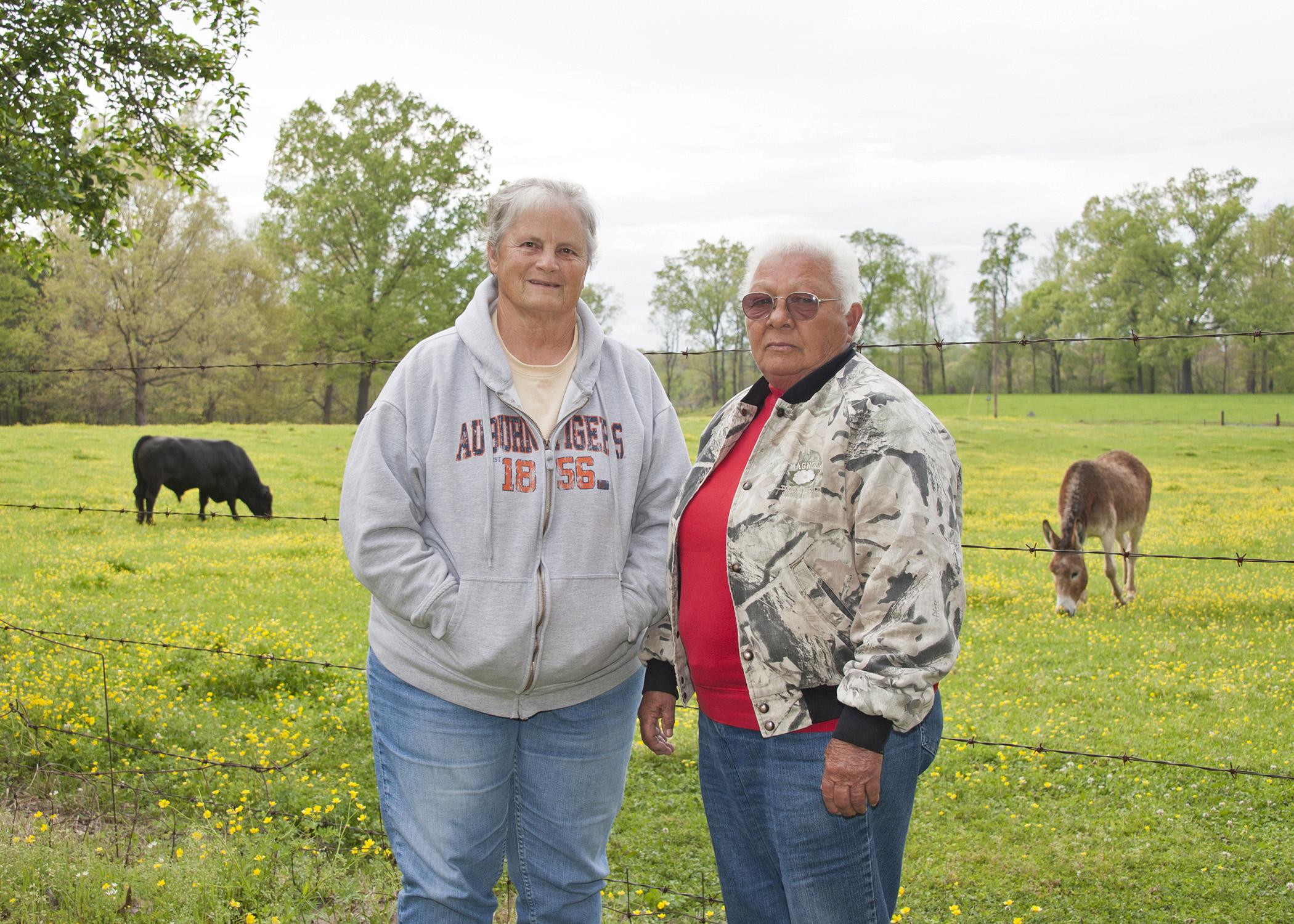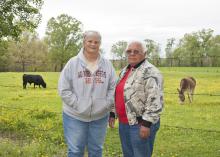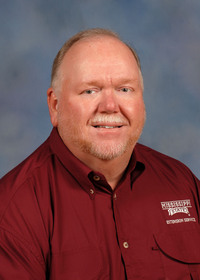Information Possibly Outdated
The information presented on this page was originally released on April 11, 2014. It may not be outdated, but please search our site for more current information. If you plan to quote or reference this information in a publication, please check with the Extension specialist or author before proceeding.
Farming duo realizes dream, shares success
MEADVILLE – Genette Hunt and Sarah Harvill live their dream every day.
The two own and operate Sage Farms in Franklin County, a 140-acre cutting-edge beef cattle operation.
“Owning farmland is something we both always wanted to do,” said Hunt, who has owned cattle with longtime friend Harvill since 1987. “When I was a child, 6 or 7 years old at the most, I’d go with my mother around our farm, and I’d ask her how many cows we had and how much land we had. I’ve always been interested in it.”
In 1987, Harvill bought acreage that adjoins Hunt’s, which allowed them to pool resources and energy and expand their herd.
“When Sarah bought that property, we really started getting the fever,” Hunt said. “We increased our herd with better quality cattle and put in place some conservation efforts to help manage the workload.”
The pair keeps between 65 and 70 head of livestock on 69 of their total acres. On the remaining land, they grow hay and separate the herd.
Hunt and Harvill do all their own labor, from building fences to cutting hay. They began consulting area agriculture offices, including the Mississippi State University Extension Service and the U.S. Department of Agriculture’s Natural Resources Conservation Service, early in their farming business. They discovered that conservation practices helps save time, money and effort.
“The rotational grazing program allowed us to graze all of our cattle on just 69 acres in a year,” Hunt said. “We also cut about 400 rolls of hay off the same pastures.
“We’ve always consulted our Extension agent, and we’ve been in just about every program that NRCS offers throughout the years. We try different things that we think will help us be more profitable while making the best use of our resources,” Hunt said.
Their farm is one of 41 involved in MSU’s Research and Education to Advance Conservation and Habitat, or REACH program. The REACH program creates a state network of farms that illustrate conservation methods that increase the profitability and sustainability of the land.
When they come across a program that they believe provides a solution to a problem, they always test it out first.
“We don’t do anything by jumping in,” Hunt said. “Just like the rotational grazing program, we try it for a year and decide whether our operation benefits from it. This is our living, so we have to be careful with it.”
Other landowners and farmers seek advice from Hunt and Harvill. Sage Farms is frequently the site of demonstration field days by both the Extension Service and NRCS. Hunt and Harvill always welcome other small farmers to visit their operation to see different conservation practices in action.
“When these ladies have a problem, they very often look outside the box for answers,” said Keith Whitehead, Franklin County Extension agent. “Many times, among small farmers, the problems are the same. It is very important for information to be shared, and these ladies provide evidence that there are a lot of resources out there to help the small producer.”




